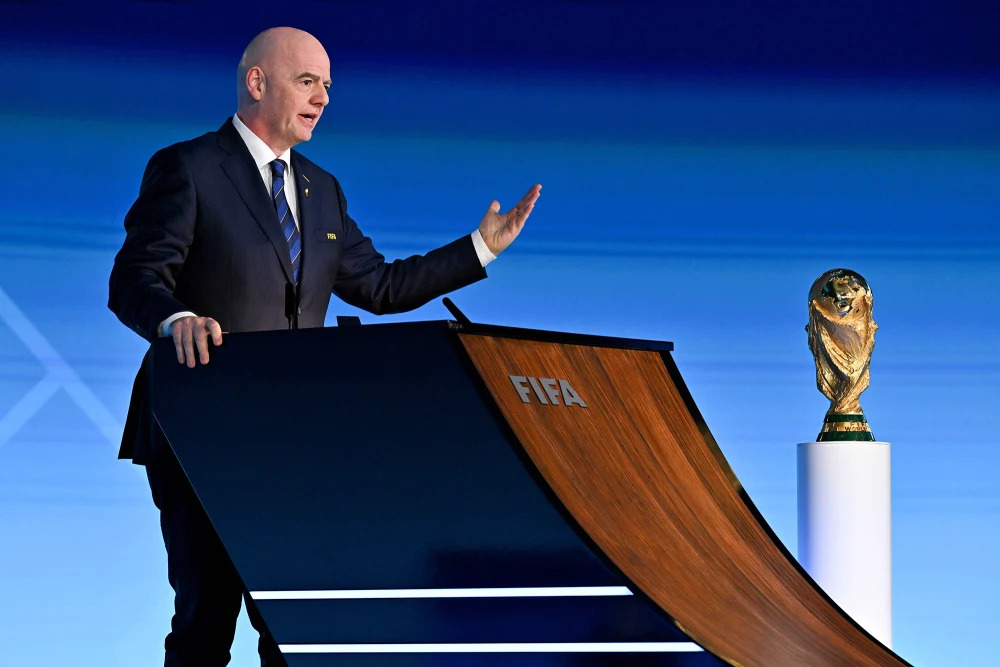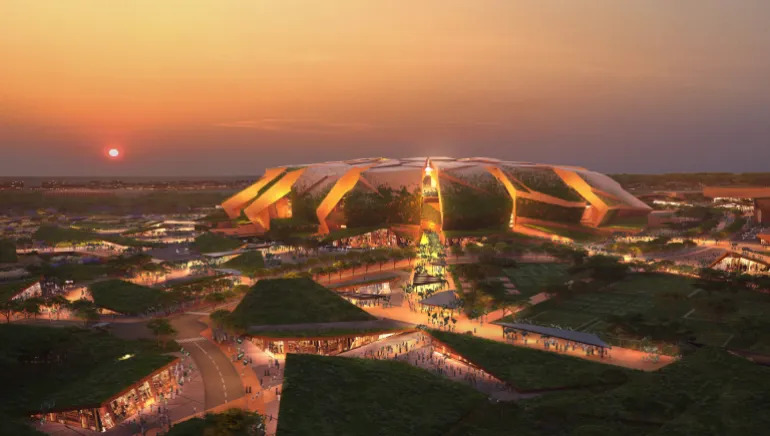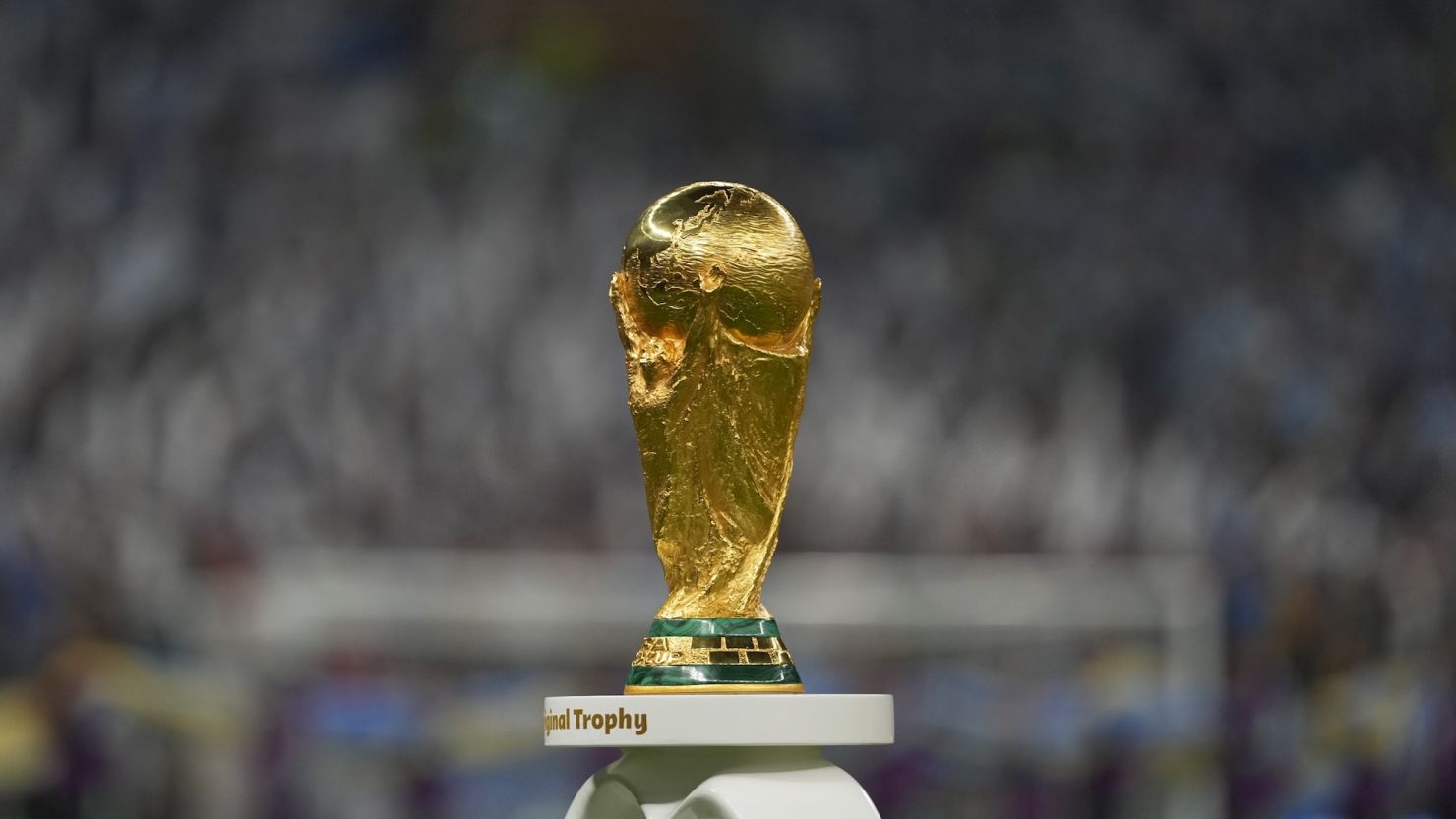Saudi Arabia Secures 2034 World Cup Amid Rising Influence and Controversy
Unopposed in its bid, Saudi Arabia clinches the 2034 FIFA World Cup, projecting an investment of over $7 billion in infrastructure and tourism, while critics point to the kingdom’s human rights record and sportswashing allegations

Saudi Arabia has officially been confirmed as the host of the 2034 FIFA World Cup, marking a significant milestone in the kingdom's push to cement its position in global sports. The announcement came during a FIFA Congress meeting where the decision was finalized without any competing bids.
 Gianni Infantino
Gianni InfantinoSaudi Arabia’s candidacy, described by FIFA President Gianni Infantino as a "loud and clear" choice, came without opposition. The Gulf nation’s proposal included plans for 15 state-of-the-art stadiums across cities like Riyadh, Jeddah, and Neom. “It is a proud day, a day of celebration, a day that we invite the entire world to Saudi Arabia,” said Abdulaziz bin Turki bin Faisal al Saud, the country’s Minister of Sports.
Despite its logistical challenges, including a lack of existing infrastructure and the intense summer heat, Saudi Arabia’s bid was waved through by acclamation. A FIFA report noted that the tournament could face scheduling adjustments, as Ramadan will occur in December that year, adding to the complexities.
The decision has drawn backlash from human rights organizations, who accuse FIFA of ignoring Saudi Arabia's record. Minky Worden of Human Rights Watch criticized FIFA for being “willfully blind to the country’s human rights record,” while Amnesty International’s Steve Cockburn called the move “a moment of great danger for human rights.” Labor groups have also raised concerns about the treatment of migrant workers, many from South Asia, who will likely be involved in constructing the infrastructure needed for the event.
 Digital rendering of the proposed King Salman Stadium in Riyadh
Digital rendering of the proposed King Salman Stadium in RiyadhInfantino defended the decision, describing the World Cup as a “unique catalyst for positive social change and unity.” He added, “I fully trust our hosts to address all open points in this process and deliver a World Cup that meets the world’s expectations.” Saudi officials echoed this sentiment, claiming the event aligns with Vision 2030, the crown prince's modernization plan for the kingdom.
While Saudi Arabia focuses on 2034, the 2030 World Cup will break new ground. The Congress also approved Morocco, Spain, and Portugal as joint hosts for the 2030 FIFA World Cup, a tournament that will span six nations across three continents. The event will also commemorate the World Cup’s centenary with celebratory matches in Uruguay, Argentina, and Paraguay, where the tournament began in 1930.  Morocco’s participation is particularly noteworthy. After five unsuccessful attempts, the North African nation will become only the second African host of the World Cup after South Africa in 2010. The country plans to construct the Hassan II stadium, which could become the world’s largest with a capacity of 115,000.
Morocco’s participation is particularly noteworthy. After five unsuccessful attempts, the North African nation will become only the second African host of the World Cup after South Africa in 2010. The country plans to construct the Hassan II stadium, which could become the world’s largest with a capacity of 115,000.
FIFA’s decision-making process has raised eyebrows. By approving a three-continent hosting plan for 2030, FIFA restricted the 2034 bids to Asia and Oceania. With only a month given for applications, Saudi Arabia emerged as the sole contender. Critics argue this limited scrutiny allowed the kingdom to secure the rights with minimal opposition.
